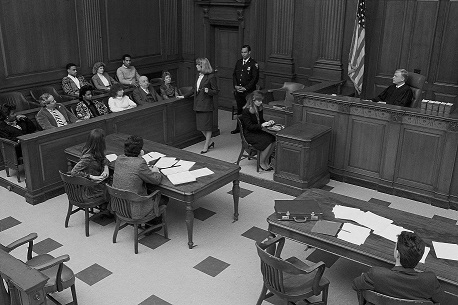Attorney-Client Privilege: A Primer for Phoenix Litigation
Posted on October 6, 2023 in UCC AND CONTRACT LAW
Introduction
The attorney-client privilege is one of the most important protections in the American legal system. It allows clients to communicate freely with their attorneys without fear that their communications will be disclosed to others. This privilege is essential for clients to be able to obtain honest and candid advice from their attorneys.
What is attorney-client privilege?
Attorney-client privilege is a legal doctrine that protects confidential communications between a client and their attorney. The privilege applies to both oral and written communications, as well as to documents and other tangible materials.
What are the requirements for attorney-client privilege?
For attorney-client privilege to apply, the following requirements must be met:
- The communication must be confidential. This means that it must be made between the client and the attorney, and that no third parties should be present or aware of the communication.
- The communication must be made for the purpose of obtaining legal advice. This means that the client must be seeking legal advice from the attorney, and the communication must be related to that legal advice.
- The communication must be made with the reasonable expectation of confidentiality. This means that the client must believe that the communication is confidential and that it will not be disclosed to others without their consent.
What are the exceptions to attorney-client privilege?
There are a few exceptions to attorney-client privilege. One exception is if the client discloses the privileged communication to a third party without the attorney’s consent. Another exception is if the client commits a crime or fraud, and the privileged communication is necessary to prove the crime or fraud.
The importance of attorney-client privilege in litigation
Attorney-client privilege is essential for clients to be able to obtain honest and candid advice from their attorneys. This is especially important in litigation, where clients often need to disclose sensitive information to their attorneys in order to develop a winning case. Without attorney-client privilege, clients would be hesitant to disclose this information, which would make it more difficult for their attorneys to represent them effectively.
How to protect attorney-client privilege
There are a few things that clients can do to protect attorney-client privilege:
- Only communicate with their attorneys about confidential matters.
- Do not communicate with their attorneys in the presence of third parties.
- Do not disclose privileged communications to third parties without the attorney’s consent.
- Keep privileged communications confidential by storing them in a secure location.
Conclusion
Attorney-client privilege is one of the most important protections in the American legal system. It allows clients to communicate freely with their attorneys without fear that their communications will be disclosed to others. This privilege is essential for clients to be able to obtain honest and candid advice from their attorneys, which is especially important in litigation.
If you are looking for a Phoenix litigation firm to help you with a case, contact us today. We have a team of experienced fraud attorneys who are ready to fight for your rights. Bill Miller can help you navigate the legal system and protect your rights. Contact Bill by calling 602-319-6899 to ensure your legal needs are conducted with confidence and legal clarity. Some of the issues covered under trial work and business law that our firm regularly handles involve:
Breach of contract, Non-compete agreements, Non-disclosure agreements, Employee theft and embezzlement, Insurance purchases and enforcement of policy coverage, Negotiation and/or enforcement of commercial leases, Negligence and gross negligence resulting in losses, Intentional acts causing a company to suffer damages, Tortious interference with contractual relationships, Unjust enrichment, Real Estate fraud, Consumer fraud, Conversion/Theft, Intentional and/or negligent misrepresentation, Business torts and Real estate title & escrow.
https://tools.azbar.org/RulesofProfessionalConduct/ViewEthicsOpinion.aspx?id=481